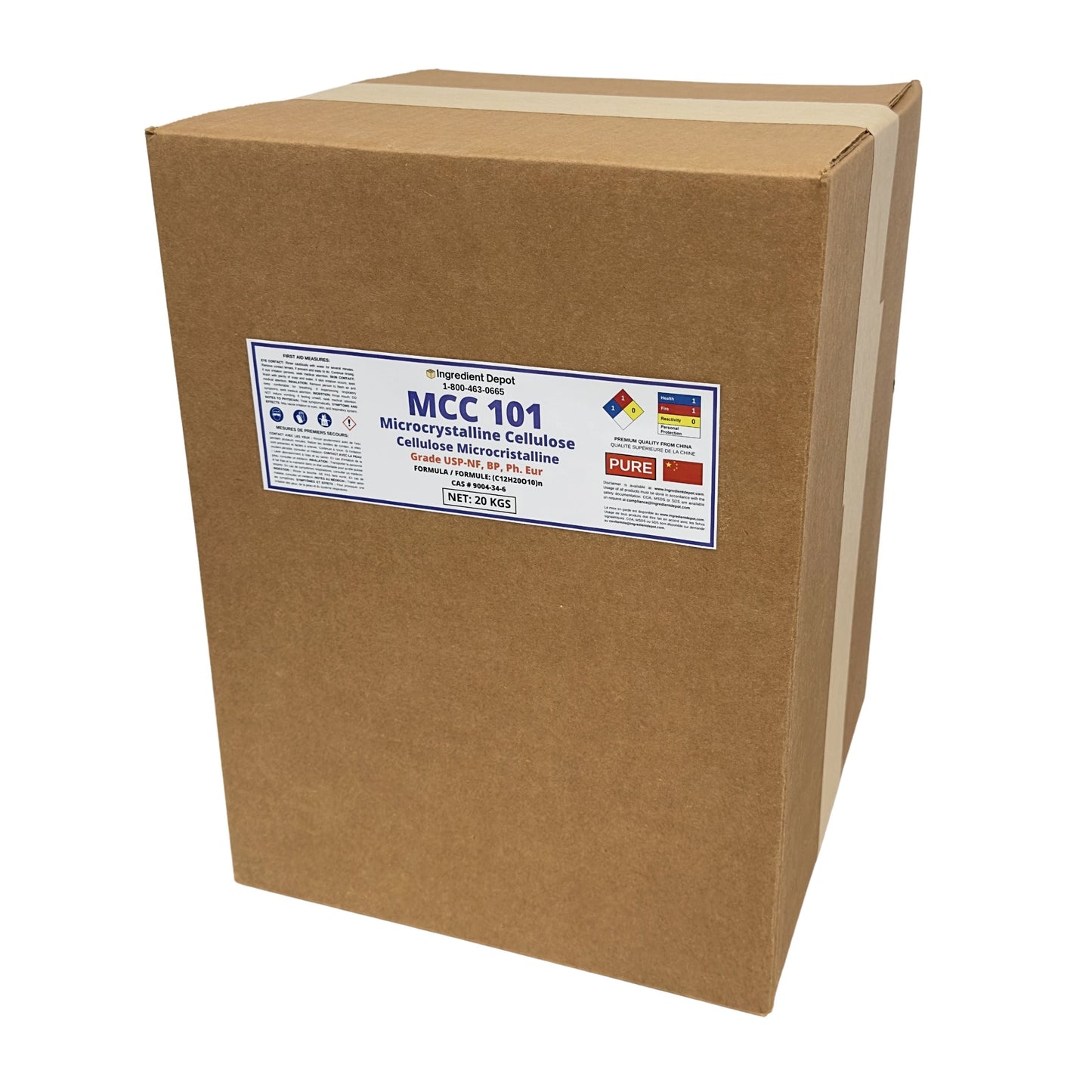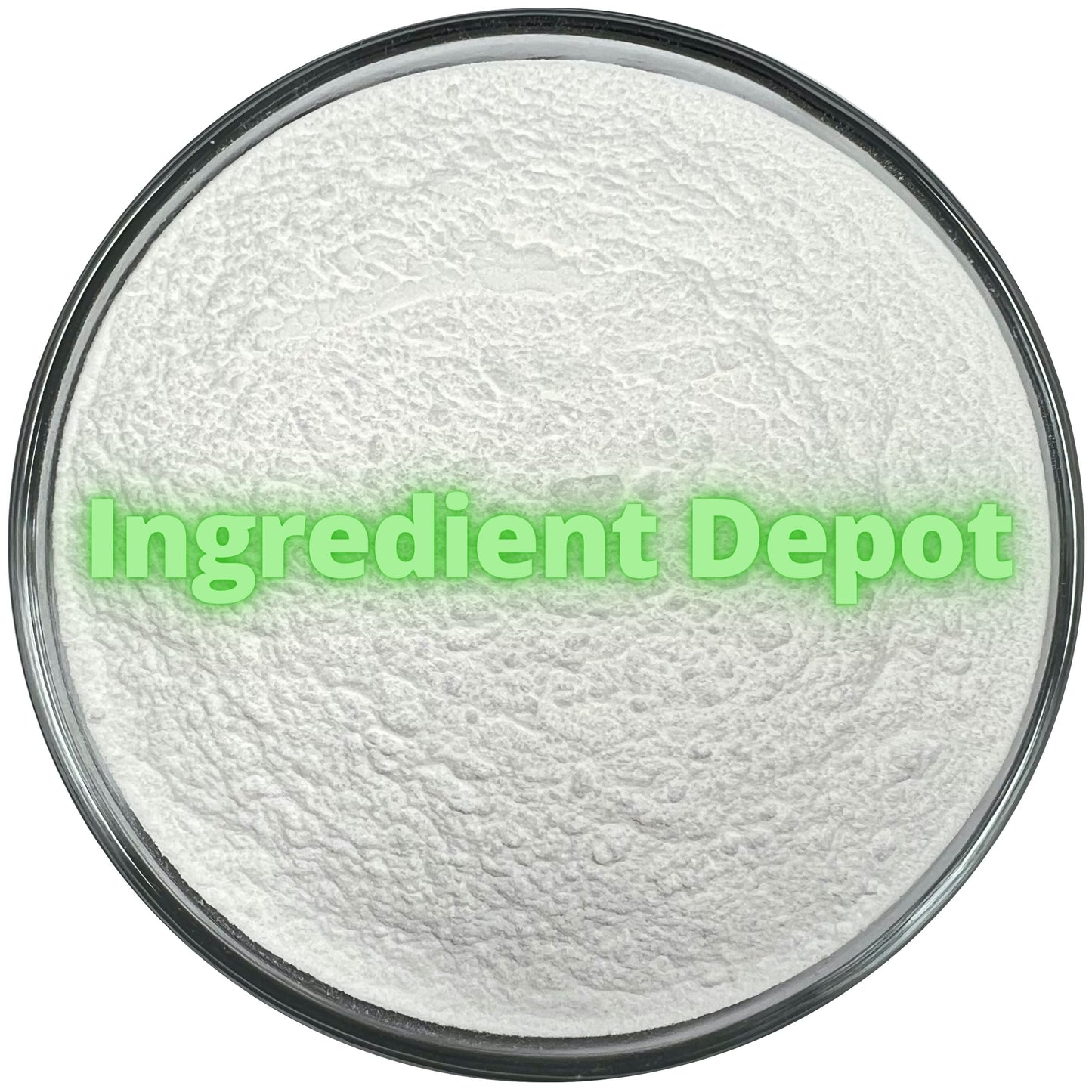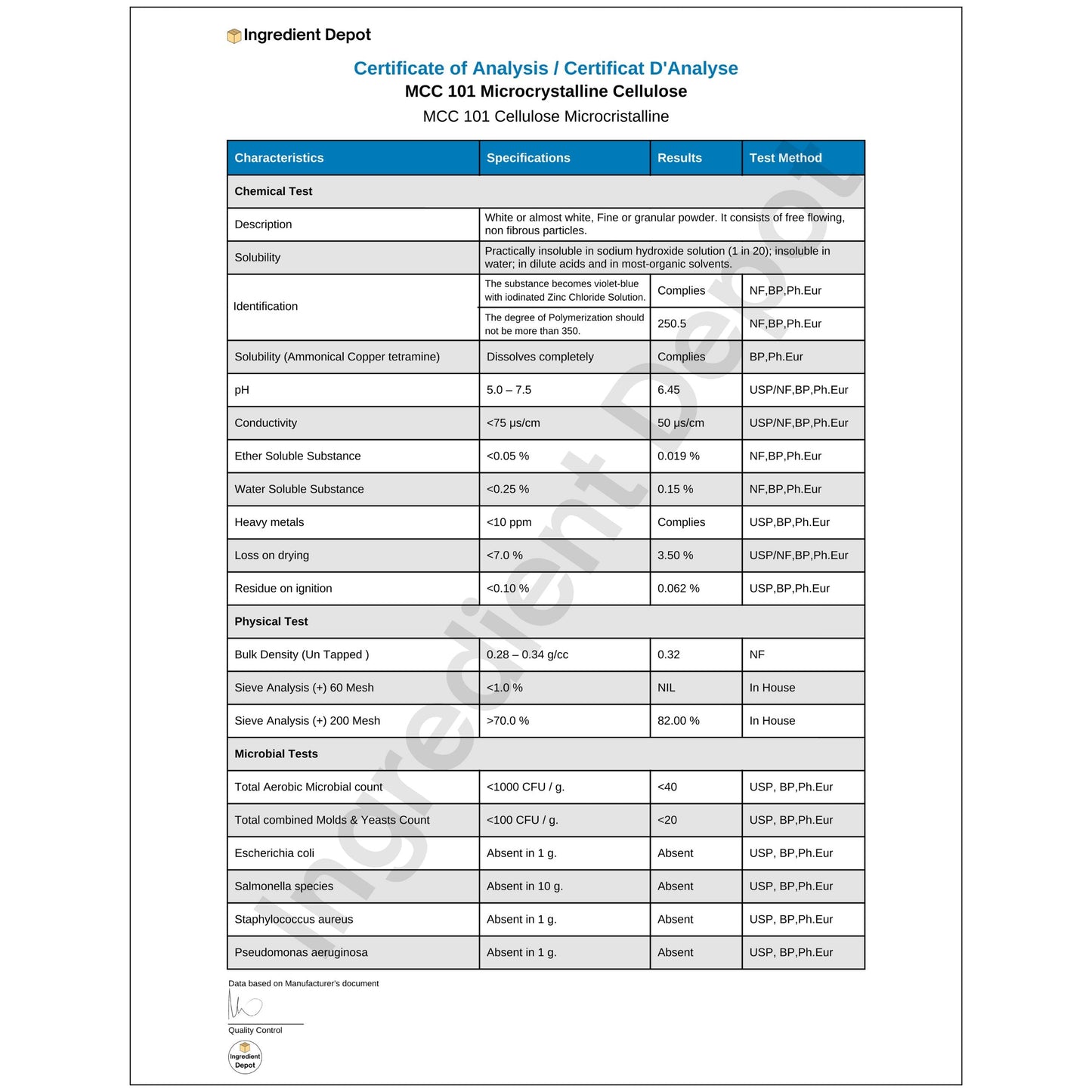Code: SAVE20 — 20% OFF
MCC 101 Microcrystalline Cellulose 20 kgs
MCC 101 Microcrystalline Cellulose 20 kgs
Couldn't load pickup availability
Shipping options, taxes, and discount codes displayed at checkout before payment
What is MCC Microcrystalline Cellulose?
Microcrystalline cellulose, discovered in the mid-20th century, is a purified, partially depolymerized cellulose derived from wood pulp. Its wide use in pharmaceuticals, food, and cosmetics has become prevalent due to its biocompatibility and non-toxicity. Considered by the industry as a versatile and safe excipient, ideal for use in oral solid dosage forms, dietary supplements, and food products.
How is MCC Microcrystalline Cellulose produced?
First, purified cellulose is hydrolyzed under controlled conditions to remove amorphous regions. Then, the resulting microcrystalline cellulose is purified, dried, and milled to produce the final product. The result is an odorless, and tasteless powder, with a specific crystalline structure that delivers unique benefits in formulation.
Global sales figures and markets
The global sales for microcrystalline cellulose in 2022 was valued at over 1.1 billion USD, and it's expected to exceed 2 billion USD by 2031. In the North American market, plant-based ingredients is expected to continue driving the growth of the personal care, cosmetics, and pharmaceutical industries. Europe currently dominates the global market and is projected to maintain its growth. The Asia-Pacific region is experiencing increased demand due to the advent of flexible applications such as 3D printing.
What is the difference between MCC 101 and MCC 102?
- MCC 101, is a finer grade of Microcrystalline Cellulose. With an average particle size of about 50 Microns and a bulk density ranging from 0.28-0.34 g/cc, it's well-suited for processes like wet granulation, roller compaction, and spheronisation.
- MCC 102, on the other hand, is a medium particle size MCC Microcrystalline Cellulose, most popular due to its versatility. It has an average particle size of 100 Microns, and it's especially suitable for directly compressible actives due to its larger particle size, providing good flow and high compressibility.
What are the uses of MCC 101?
- Filler and binder in pharmaceutical tablets and capsules
- Disintegrant in pharmaceutical tablets
- Texturizer and anti-caking agent in food production
- Binder in dietary supplement tablets and capsules
How is it packaged?
Our 20 kg box, is a convenient packaging size for businesses of all sizes, offering easy handling and storage while ensuring product integrity and quality. Every MCC 101 from China box is packaged in a bag inside a sturdy box.
Grade and Country of Manufacture
MCC Microcrystalline Cellulose 101 meets the manufacturer's USP-NF, BP, Ph.Eur grades, adhering to quality standards of multiple pharmaceutical regulatory bodies. This product is manufactured in China.






